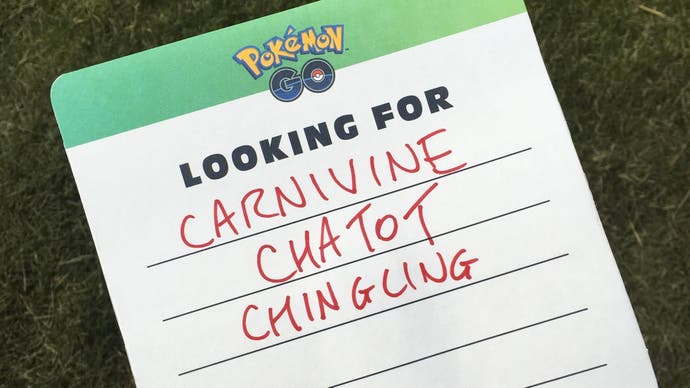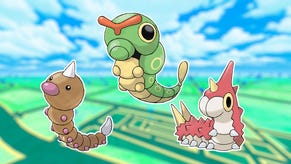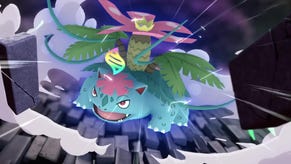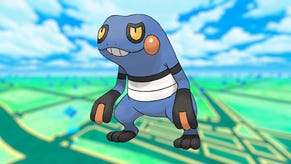This year's Pokémon Go Fest gets playing with strangers right
Swanna be friends?
At this point, you know what you're getting from Pokémon Go Fest. It's become reliable, but in the right ways; if last year's event didn't confirm it, this third Go Fest has put to bed the question of whether Niantic can run fan gatherings without major network issues (as we saw with 2017's disastrous debut) while attendees will always walk away with an exclusive (for a while at least, anyway), never-before-seen Pokémon, plus a deluge of regional exclusives and Unown letters to take home.
Aside from a storm that temporarily evacuated the event on Saturday - an act of God even developer Niantic can't do much about, but still compensated players for - this past week's four-day event in Chicago ran smoothly. Between the eradication of queues to start playing (a lengthy wait for merchandise and PvP tournaments were another matter, mind) and plenty to keep people entertained on the day, it seems that everyone who attended walked away happy. What a difference a couple of years make.
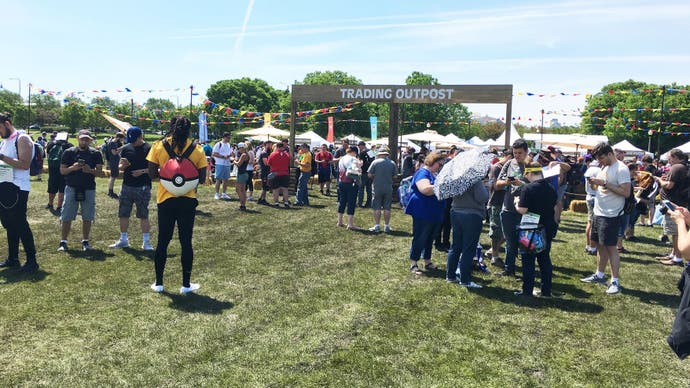
Though at this point we know what we're getting from attending a Go Fest, this is not to say it isn't capable of trying new things. For example this year restrictions were lifted so you could easily trade Pokémon with strangers. Usually, you could only trade Pokémon with newcomers at a staggering cost, and do so once-per-day. Only by becoming in-game friends and interacting daily for weeks and months are these restrictions eased; it's a smart, well-balanced system, making those who want to shortcut their way to a complete Pokédex think twice about whether it's worth doing. But here, with those costs slashed and up to five trades possible, you could walk away with not only the rare Pokémon Niantic itself had on offer, but potentially much more thanks to fellow attendees.
Not only did the game encourage this through a bonus quest after receiving Jirachi, this year's exclusive Mythical catch, but the event space itself did too. A trading post was a constant hive of activity, with staff emceeing requests over megaphones, and handing out signs for attendees to scribble their requests on to be held aloft or stuffed on the outside of a backpack as they explored the park.
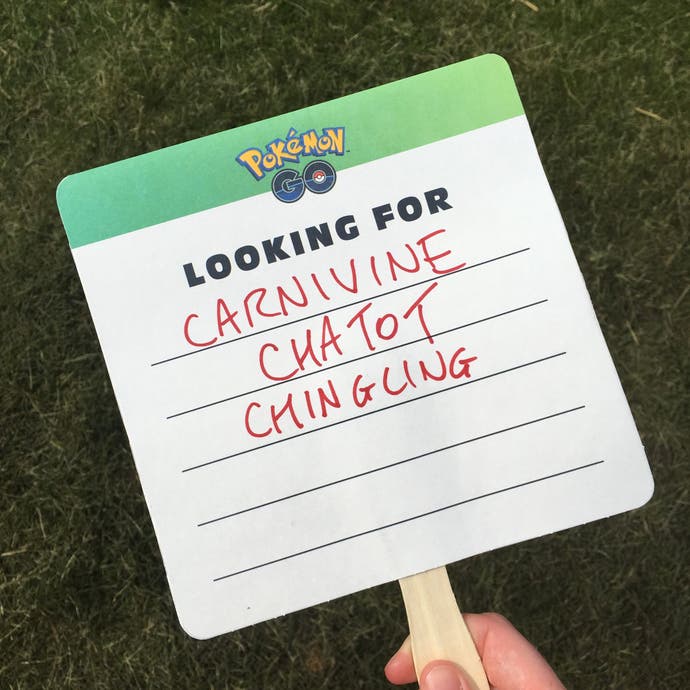
It was a simple, analogue approach but it worked; after an awkward double take and neck crane to glance at a speeding passerby's sign, I got talking to a pair from Toronto who, between the three of us, managed to finally complete the regional 'Lake Trio', a set of legendary Pokémon you could only get from visiting distant continents - or by trading with those who have. Despite the discount on the day, the costs were still eye-watering - a million Stardust, a currency that doesn't come easily - but within a matter of minutes, I managed to catch some of the most elusive creatures with surprising ease.
Throughout the day, a glance of a sign often led to an exchange of pleasantries and some friendly bartering, and even when a trade didn't go someone's way, there were acts of generosity to help another player in need - someone from Florida was happy to give me a regional exclusive Carnivine because it was 'like a pest' where they lived. One person's trash is another's treasure, and all that.
People weren't just out to complete their Pokédex, either, but collect their favourite shinies or get their hands on sets of Pokémon with legacy movesets you cannot get anymore, providing a surprising amount of flexibility in what trading could be, if given more of an opportunity to do so. These simple changes to trading, a feature not even advertised ahead of time, was easily the highlight of this year's Go Fest, and made this gathering of players from far-flung regions make more sense than ever before.
This drive to connect strangers was reflected in other parts of the event, too. PokéStops littered the park, and not only did these give out a steady supply of Poké Balls to keep you catching Pokémon throughout the day, but also provided bonus research tasks to add new friends, send gifts and challenge others to battle.

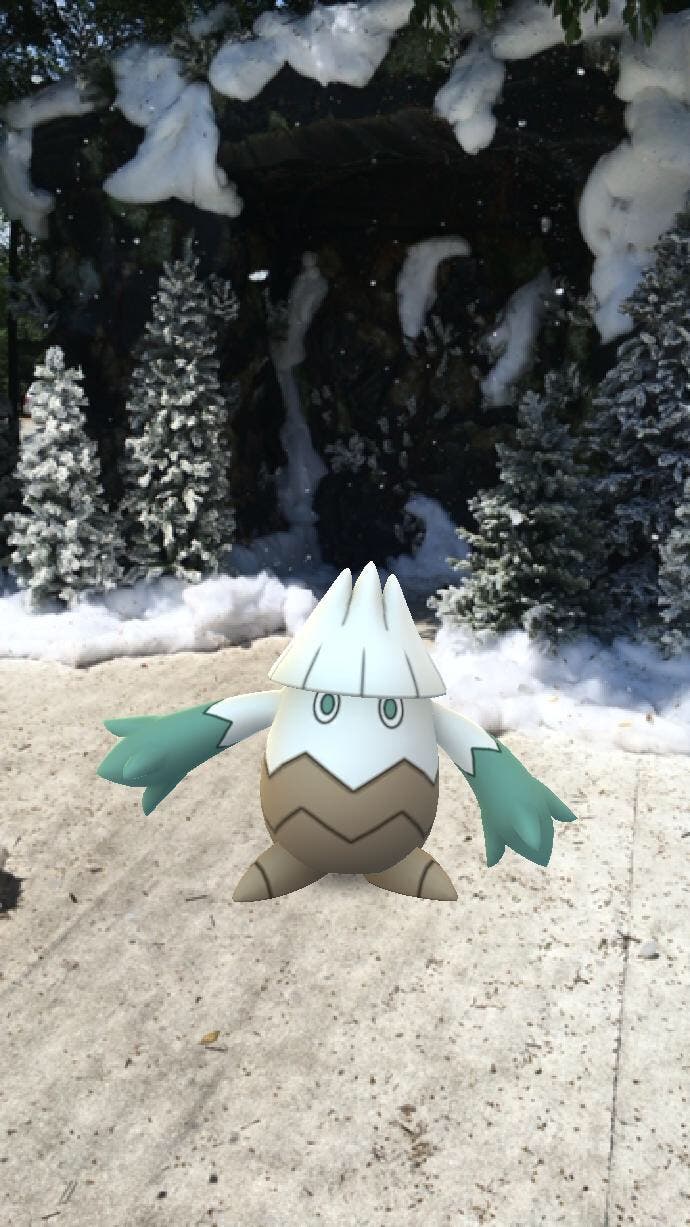
Whether by accident or design, their random distribution meant wherever you were in the park, there was someone in need of a helping hand to complete them. These encounters were often fleeting but fruitful, often leading to discussions of the biomes nearby and advice of which rare Pokémon could be found there, or even just simple small talk about where people travelled from and what shinies they were lucky enough to find that day. Like trading, it gave a greater purpose to having so many players all in one place.
Working with others like this was so positive that I hope Niantic doesn't stop there. Personally, I'd love to see it in other areas of the game; though Pokémon Go is the most complete, well-rounded and social as it's ever been, with monthly Community Days, themed events and coordinated raids keeping dedicated local communities going, it lacks the spark and surprise of encountering new players that the game had many years ago, and perhaps offering similar tasks to Go Fest - whether it's seeking out new players, or battling and trading under various circumstances - could help recapture that day-to-day.
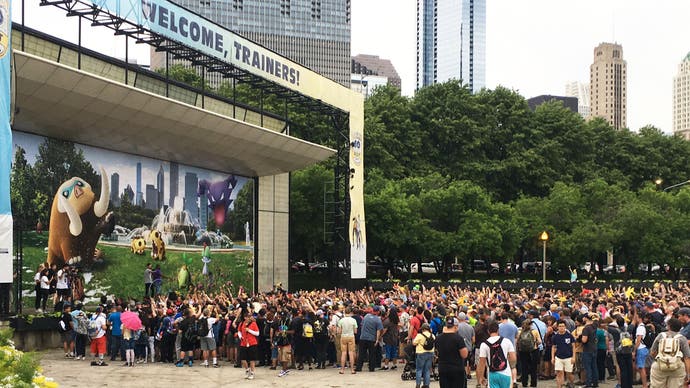
But even if it doesn't - after all, it makes the most sense to do this at events, not to mention the opening up of trading becoming a genuine selling point to attend - next month's gathering in Dortmund looks to adopt the Chicago template, with ticket-only access and a likely similar research quest, and hopefully these other less advertised but perhaps more interesting ideas to encourage socialising as well. Two years on, and not only has Niantic worked out how to reliably put on a well-run event, but has given us more compelling reasons to attend one.
This article is based on a press trip to Chicago. Niantic covered travel and accommodation costs.
